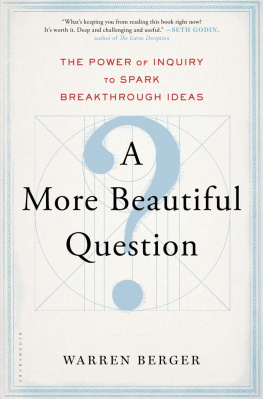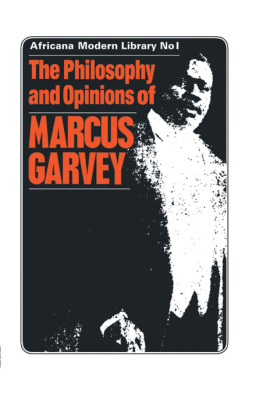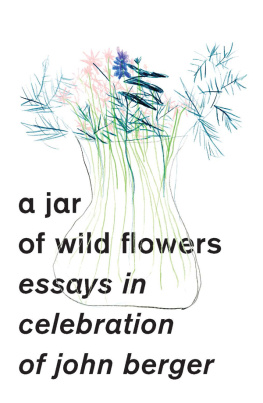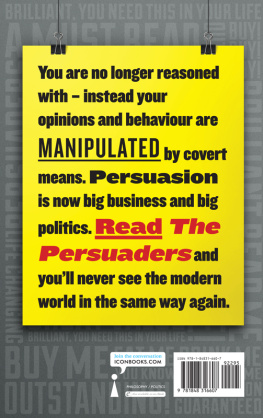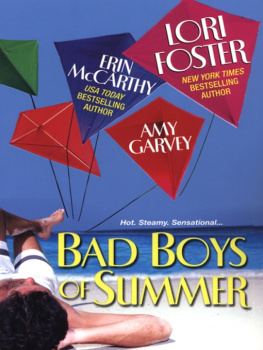UNLOCKING LEADERSHIP MINDTRAPS
How to Thrive in Complexity
JENNIFER GARVEY BERGER
stanford briefs
An Imprint of Stanford University Press
Stanford, California
Stanford University Press
Stanford, California
2019 by the Board of Trustees of the Leland Stanford Junior University.
All rights reserved.
No part of this book may be reproduced or transmitted in any form or by any means, electronic or mechanical, including photocopying and recording, or in any information storage or retrieval system without the prior written permission of Stanford University Press.
Printed in the United States of America on acid-free, archival-quality paper
Library of Congress Cataloging-in-Publication Data
Names: Garvey Berger, Jennifer, 1970 author.
Title: Unlocking leadership mindtraps : how to thrive in complexity / Jennifer Garvey Berger.
Description: Stanford, California : Stanford Briefs, an imprint of Stanford University Press, 2019. | Includes bibliographical references.
Identifiers: LCCN 2018050366 (print) | LCCN 2018058781 (ebook) | ISBN 9781503609785 (ebook) | ISBN 9781503609013 (pbk.; alk. paper)
Subjects: LCSH: LeadershipPsychological aspects. | Complexity (Philosophy)
Classification: LCC HD57.7 (ebook) | LCC HD57.7 .B46975 2019 (print) | DDC 658./092019dc23
LC record available at https://lccn.loc.gov/2018050366
Cover design: Kevin Barrett Kane
Cover illustration: Marina Zlochin
Typeset by Classic Typography in 11/15 Adobe Garamond
FOR NAOMI CATHERINE AND AIDAN JAMES, IN GRATITUDE FOR ALL I HAVE LEARNED FROM YOU AND WITH HOPE THAT THESE IDEAS WILL MAKE YOUR LIVES, AND THE WORLD YOU ARE INHERITING, BETTER FOR YOU AND BETTER FOR THOSE WHO COME AFTER YOU. I LOVE YOU MORE THAN THE MOON AND THE STARS.
CONTENTS
ACKNOWLEDGMENTS
In my two previous books, I have thanked the writers and thinkers whose work has so profoundly informed mine. Know that I feel grateful to you still, every day. As I write these acknowledgments from my new flat in London, I am deeply aware that the quality and texture of my relationships is fundamental to my writing and thinking. Bob Kegan and Bill Torbert, Bob Anderson and David Rooke, I treasure the time we have spent together and all I have learned from you and alongside you, not just from your theories but from your friendship. A special thank-you to my dear friend Doug Silsbee, who died before he read this manuscript; your ideas and your spirit weave through me and this book and will be with me for the rest of my life.
My colleagues at Cultivating Leadership, the firm we began two books ago, have been a constant source of support and inspiration for me. These ideas have grown as the organization has grown, and the voices, ideas, and feedback of these treasured friends and colleagues have even though he did not coauthor this book, I hope that something of his rigor and his humor has made it onto these pages. Zafer Achi kept me on my toes, reading every page as fast as I could write it and encouraging me always to think bigger, connect the ideas more smoothly, push harder into one literature or another. His wise counsel made the ideas better, but it was his optimism that these ideas could change the world that was most precious.
My clients are always my inspiration and in this book perhaps more than any other. Thank you for the constant support to make the ideas faster, more applicable, more helpful in the world. Particular thanks to Alison Parrin, Ciela Hartanov, Brian Glaser, and Karen May and all of the folks at the Google School for Leaders who read the manuscript in an earlier draft and offered ideas and inspiration. I am grateful to Stuart Irvine and Bob Barbour and the whole Lion team; Melissa McLaughlin and David Shenkein at Agios Pharmaceuticals; and Kirsten Dunlop at Climate KIC. All of you have inspired me with your leadership, which pushed to make these ideas come to life. Mike Vierow and John Lydon of McKinsey took a chance on these new ideas as we designed a mindtraps-based program for high-potential leaders across Australia and New Zealand. My coaching clients, hidden in the many case studies which follow, will remain anonymous here, but your struggles and triumphs have taught me more about leadership than any theory or book ever could. This book is from you and also for you.
Thank you too for those other friends who have read this manuscript in draft. This is the first book Ive sent out to people in a Google Doc, and it was really fun to watch you all play with the language and interact with each other as you tried on new titles, new ideas, new phrasings. Thanks to Maurice Alford, Kerrie Ashcroft, Desley Lodwick, David Metherell, Cornelis Tanis, and Marco Valente. Margo Beth Fleming began two books ago as my editor and Im honored to now have her as a friend. Thanks for your guidance and your support on this one, even though youre off in another life yourself now. Steve Catalano, my new editor at Stanford, has been unfailing in his encouragement and delight in this project, which he loves almost as much as he loves sea kayaking. Thanks too to Jeff Wyneken who has copyedited these words with care, and to Sunna Juhn who makes sure none of the details are lost in the great sweep toward publication.
And, in an unusual time, here is an unusual thank-you. I want to thank the team who has cared for my body as my ideas have found their way to the page. I sketched the idea for this book in my journal two nights before I was diagnosed with a local recurrence of the breast cancer I had had two years before. This book was written as I prepped for and recovered from four surgeries, and in the radiotherapy waiting room. Stan Govender, my surgeon, dazzled me with his combination of competence and kindness, although neither of us was particularly pleased at how many times we got to see each other in the operating theater. Mark Renneker and Keith Block have been my integrated oncology team, delving into the mysteries of cancer (why did it come back?) and helping me with the diet and life style that are intended to keep it away for good. They have offered me guidance and, more important, hope. The staff of the Wellington Hospital Blood and Cancer Centre and the Radiotherapy Department worked to heal my body and my spirit. Amazing what a cheerful Good morning, Love! can do to make a gray time feel a little brighter. Debbie Ingham, my GP, coordinated all of this with warmth and boundless energy. My dear friend Melissa Garber met me for almost every one of my radiotherapy appointments, making me smile when she could and just being there for me when I was too afraid to smile. How glorious to have a best friend finishing her PhD in clinical psychology when I needed it most! And, generally, my experience with the public health system in New Zealand felt miraculous to me. I am grateful to my adopted country and its doctors for their care and support.
Jim Garvey read these words and offered his fine touch as a writer, and his loving touch as a dad. Jamie Council Garvey and Tamara Eberlein-Garvey were the inspiration for the book in the first place. I figured if I hadnt yet written a book that you two brilliant women loved, I needed to remedy that (now I hope I have!). Catherine Fitzgerald was my introduction to these fields, and I feel unspeakably lucky to have a colleague, mentor, and mother all in a single person.
Michael Garvey Berger belongs on most of the lists above but is in a place of his own as a colleague at Cultivating Leadership, a companion by my side at hospitals and in our living room, and a constant reader of seriously rough drafts when he probably wanted to be doing something else. If we had peered into this future on our first date thirty years ago, we would never have believed where life would take us. Thanks for traveling through complexity with me and showing me how growth and love can build both of us ladders to a new future.
Next page


